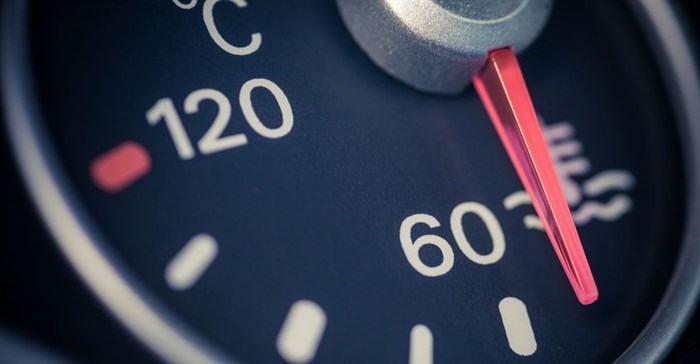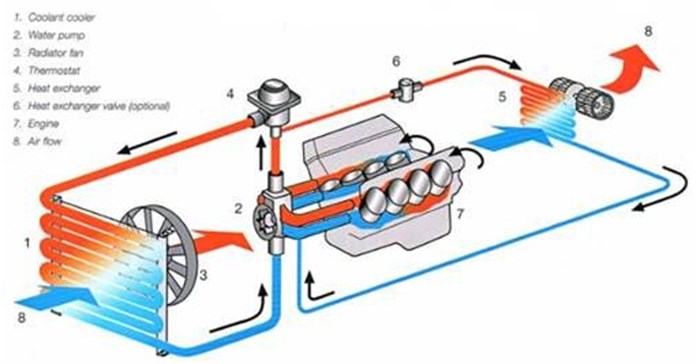Understanding the lifespan of vehicle parts: car coolant

"For these reasons, it is important that you not only have coolant in your vehicle but that it is checked annually," says Dewald Ranft, chairman of the Motor Industry Workshop Association (MIWA), an association of the Retail Motor Industry (RMI).
"It is interesting to note that in a heavy-duty diesel engine, for example, only one-third of the total energy produced works to propel the vehicle forward. An additional one-third is removed as heat energy by the exhaust system. The remaining one-third of heat energy produced is taken away by the coolant.
"This heat removed by the coolant provides a balance in the overall removal of engine heat that is critical in ensuring that the engine operates at optimal temperature. Overheating could result in accelerated deterioration of the oil and subsequently the engine itself," says Ranft.
While water provides the best heat transfer, ethylene glycol is used in coolants to provide freeze protection as it has a higher boiling point than water. Because of this higher boiling point, it does not get vaporised easily inside the cooling system which can cause over-heating.

What's inside good, quality coolants?
Mario Vester, Engen Lubricants technical advisor, says that good quality coolants contain about 95% ethylene glycol and 5% other glycols (butylene glycol, hexylene glycol, diethylene glycol) together with ingredients such as corrosion inhibitors, antifoams and dyes.
Coolants are available as a concentrate (which needs to be mixed with water) or as a premix (which is a 50:50 mixture of coolant and deionised water).
“Premix coolants are highly recommended for two reasons. Firstly, by using premix it eliminates concerns around using hard water (high mineral content which can be harmful to the internals of the vehicles cooling system) with a concentrated coolant. Secondly, it prevents incorrect mixing ratios as too much water increases rust corrosion and too much coolant leads to inefficient heat transfer,” advises Vester.
Ranft says that as a vehicle owner you need to understand that the aftermarket is filled with high- and low-quality coolants of all colours. “Colour is not a good indicator of the coolants quality but acts as an identification guide for the coolant manufacturers."
The best maintenance practice is to know the exact coolant required for your vehicles cooling system. You should never mix two different types of coolants so the old product should be drained first before using the new coolant mixture.
Coolants degrade over time, as the ethylene glycol breaks down. Once a coolant has degraded, engine metals are at risk of corrosion.
Vester explains that coolant degradation occurs more quickly in engines operating at higher temperatures or in those that allow more air into cooling systems. He recommends that the coolant is tested on an annual basis.
“Coolants play a vital role in preserving the overall engine heat balance and protecting your engine components from corrosion. Speak to your mechanic about using a high-quality coolant product.
"Through following careful preventative maintenance practices you can ensure the proper protection of your engine,’ concludes Ranft.

